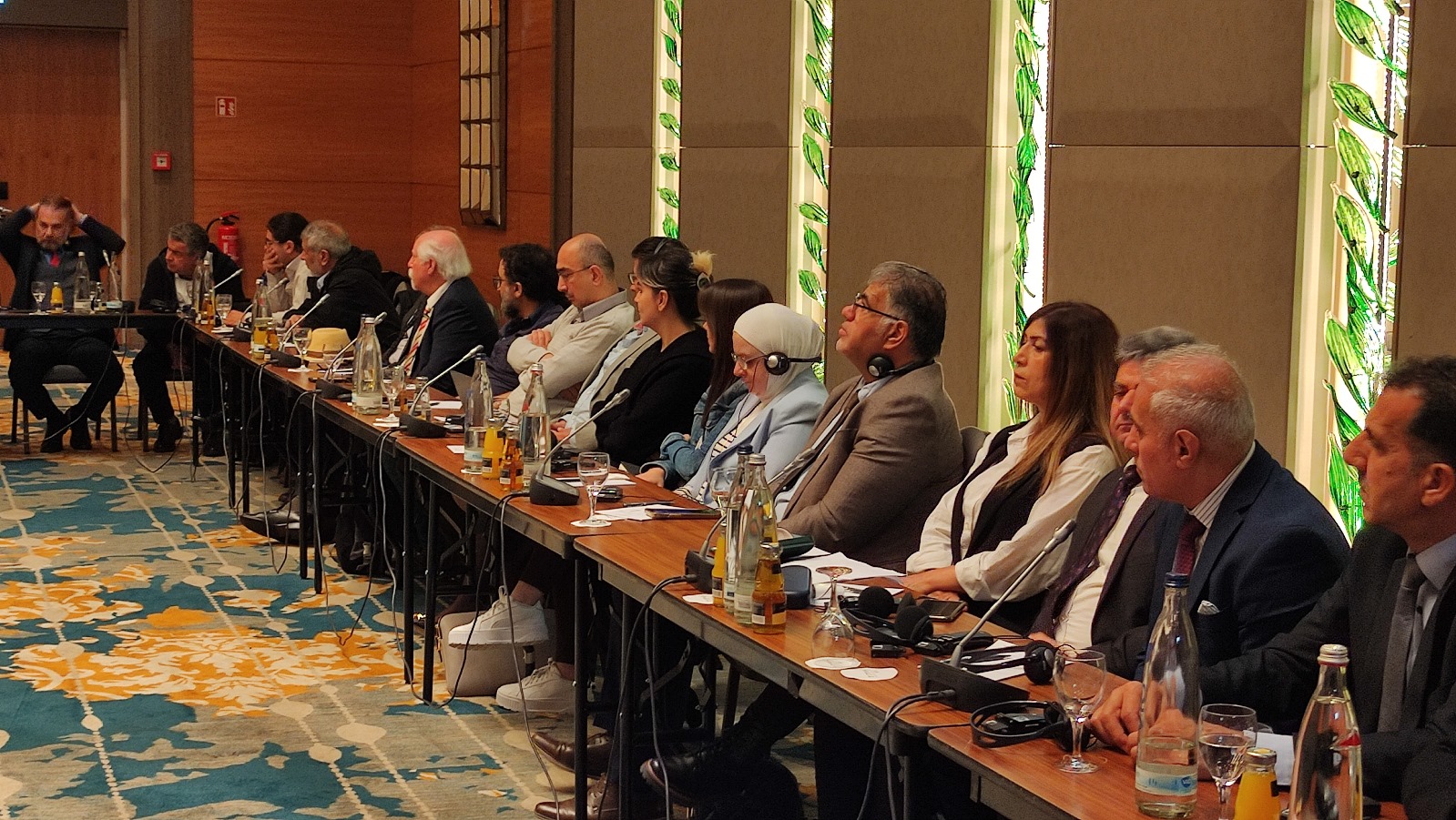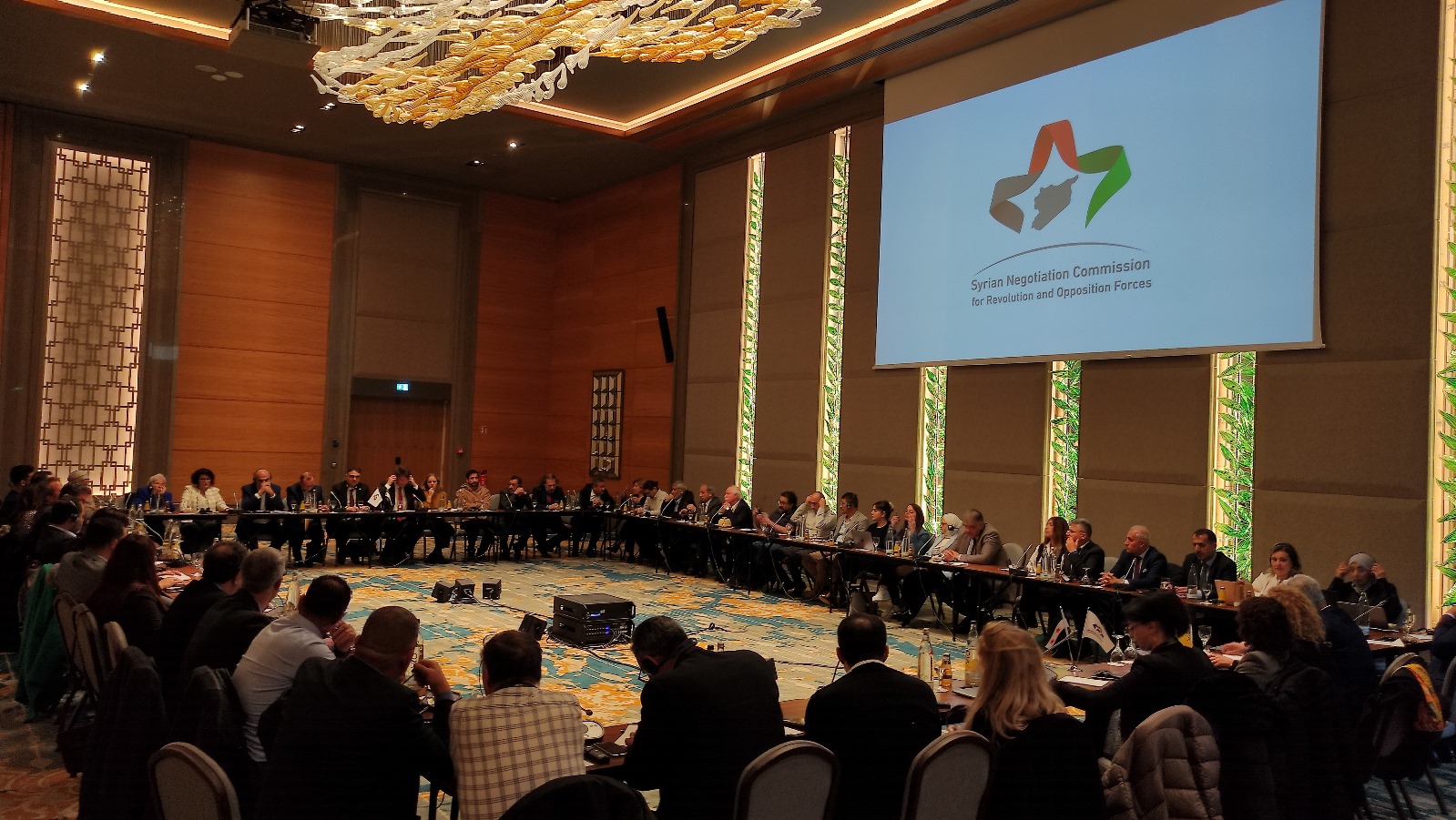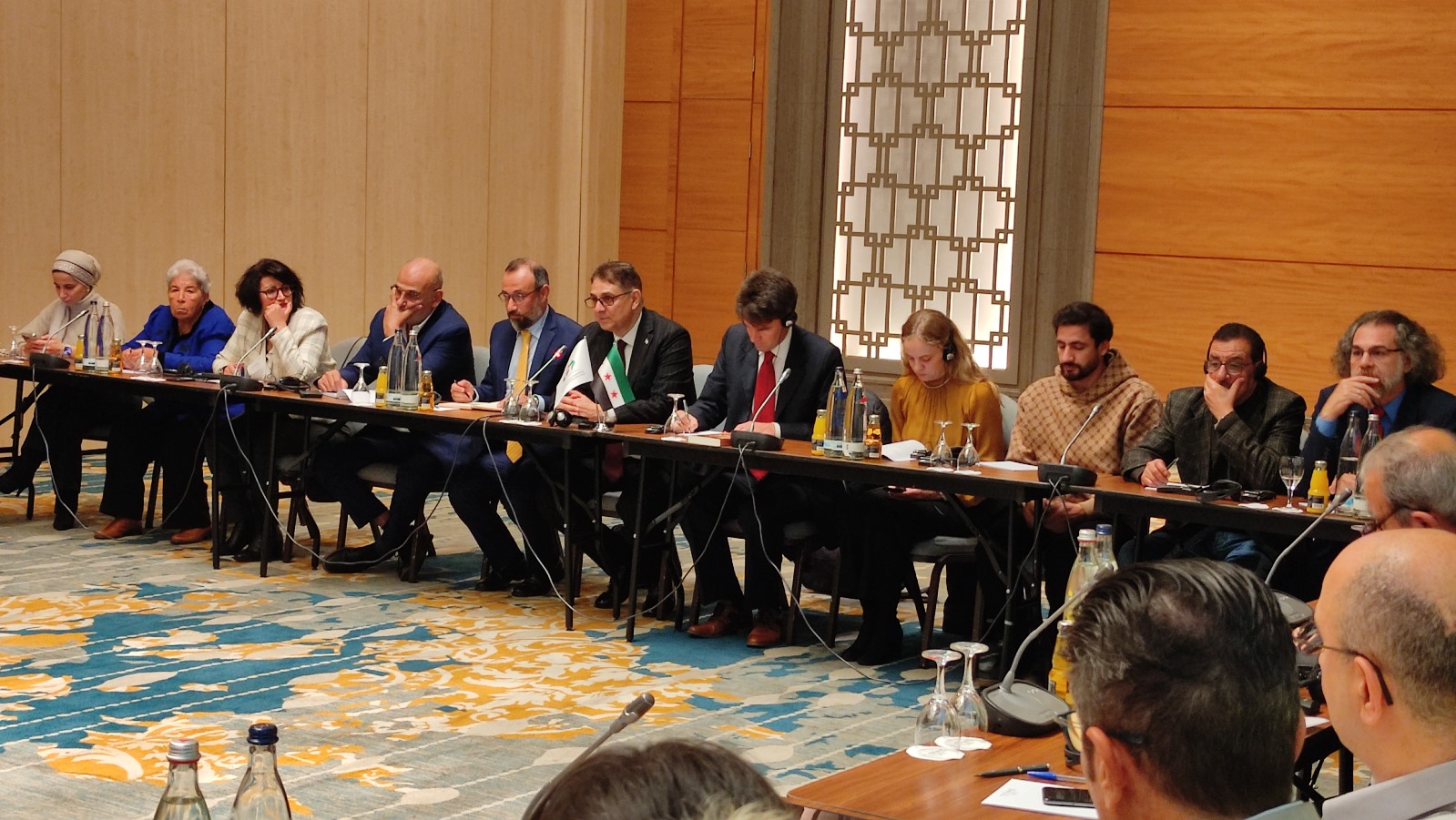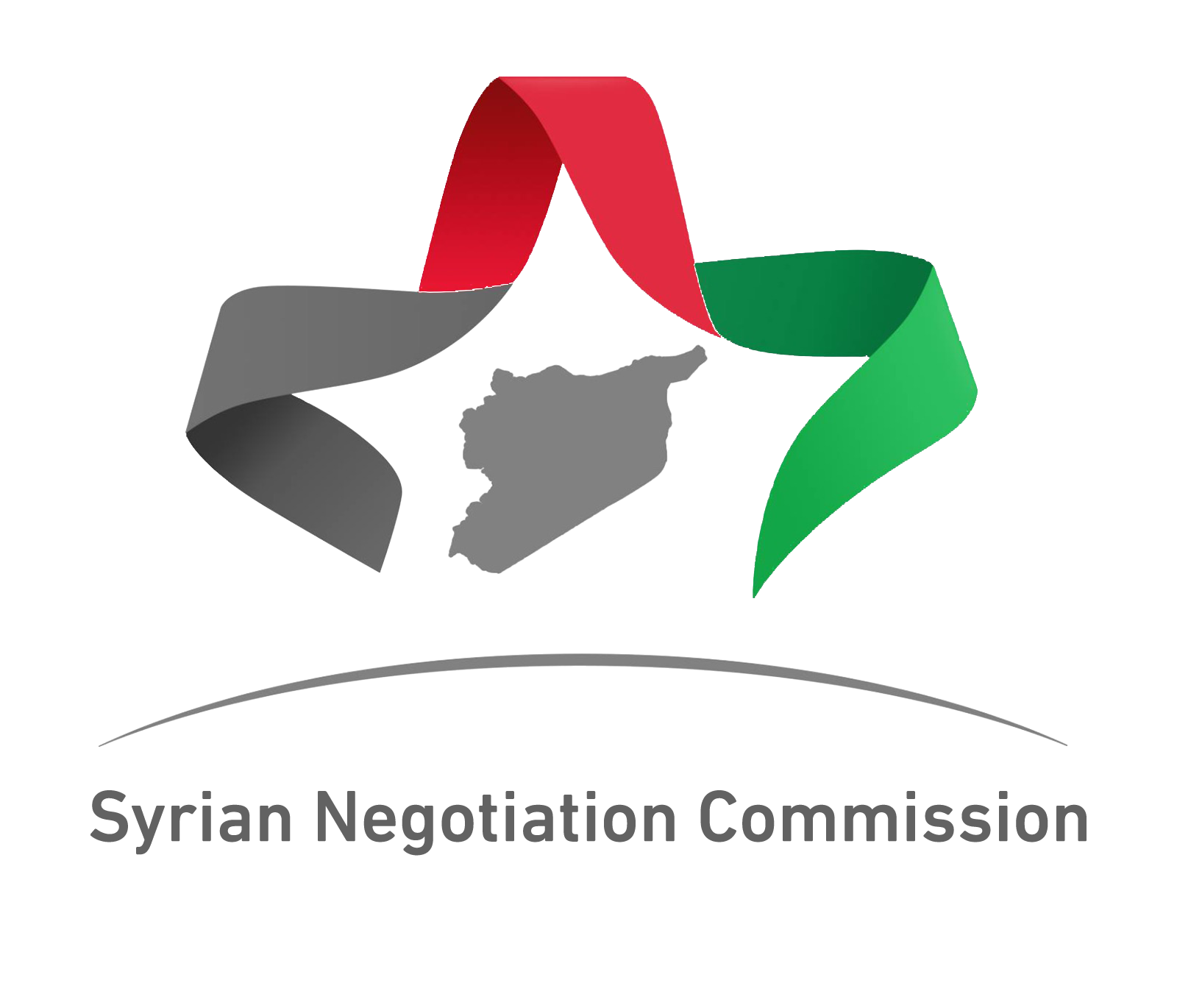With the Participation of Civil Society Organizations
Commission President: We are Committed to Engaging Syrian Communities Worldwide
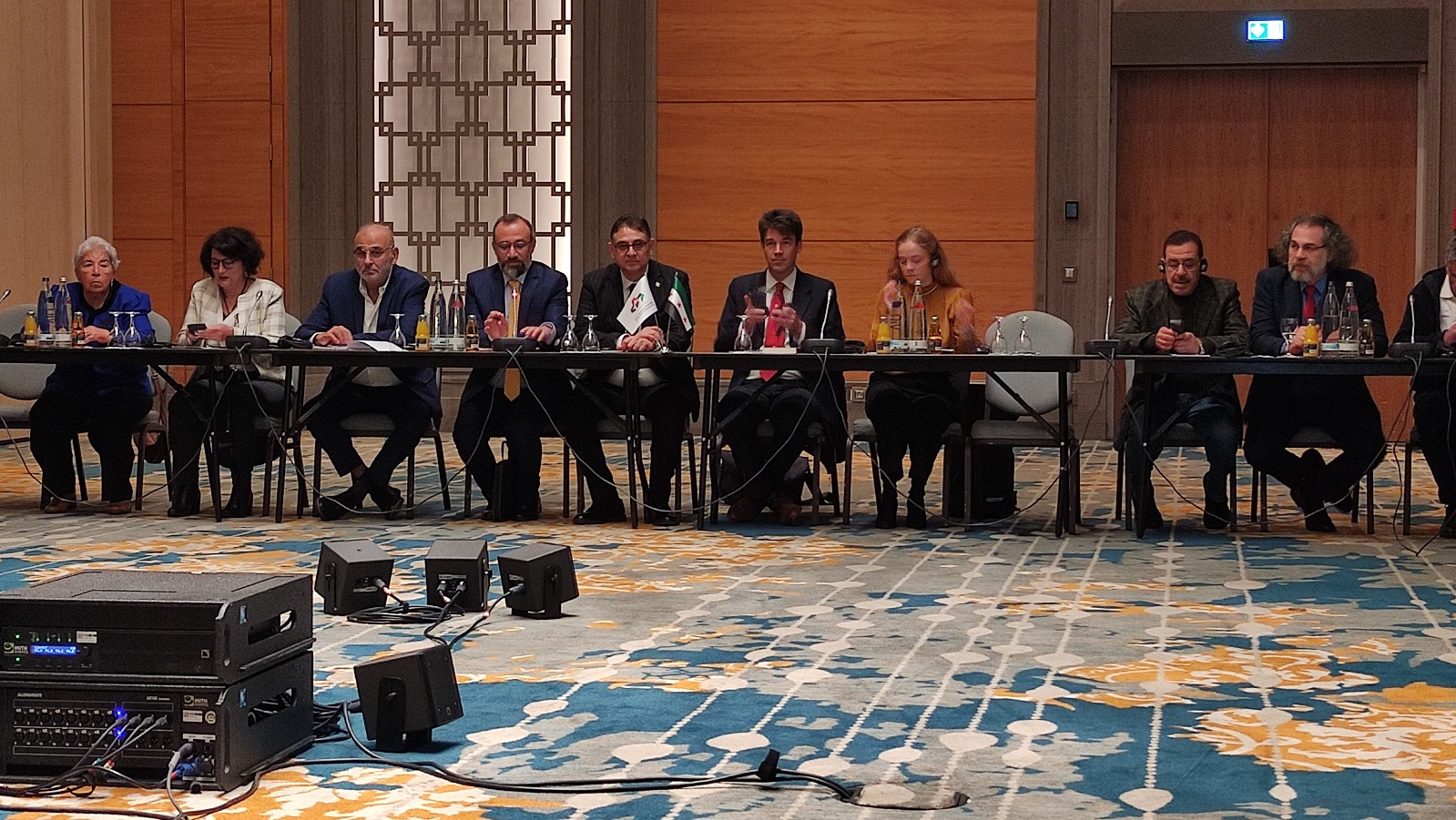
October 4, 2024
Dr. Badr Jamous, President of the Syrian Negotiation Commission, provided a comprehensive briefing on the political and negotiation tasks of the Syrian Negotiation Commission, its objectives and structure, the main tasks of its components, offices, and committees, as well as its work at both the international and local levels, and the strategies that can be implemented in collaboration with civil society groups and stakeholders.
During a dialogue session organized by the Syrian Negotiation Commission in Berlin on October 4 and 5 with the Syrian civil society in the Federal Republic of Germany, the Commission President discussed the Commission’s relations with active states, including Arab, regional, and international ones, and its clear and consistent position on the political process in accordance with Resolution 2254 and other international resolutions. He also addressed its relationships and meetings with international envoys and the United Nations, providing an overview of the meetings held on the sidelines of the 79th session of the United Nations General Assembly at the end of last month.
He emphasized the importance of the Commission’s collaboration with civil society organizations, stakeholders, politicians, media professionals, and research centers across various regions of Syria, including areas under regime control and in countries of refuge and diaspora. He highlighted the Commission’s commitment to maintaining constant communication with Syrian communities worldwide to foster shared visions and strategies and to adopt the demands of the Syrian people across different orientations, ultimately developing actionable strategies that strengthen the position of Syrians and their cause on the international stage.
Dr. Jamous also addressed the positions of various countries and the occasional decline in interest in the Syrian issue amid increasing global crises and internal challenges within states. He spoke about the Commission’s efforts to keep the issue of a political solution for Syria a priority for these countries, its work to ensure the rights of refugees, and its warnings to countries about the dangers of normalizing relations with the Syrian regime and its futility, as well as confronting the shifting policies of some states that stray from the interests of the Syrian people, the political solution, and international resolutions.
He pointed out the Syrian regime’s continued rejection of a political solution and its refusal to implement Resolution 2254 and other international and UN resolutions. The regime seeks to marginalize the other Syrian party to maintain a singular representation of Syria solely by the regime and does not believe in a political solution. It requests its allies and some lenient countries to exert pressure to marginalize all political solutions, including Resolution 2254, the constitutional committee, and negotiations.
Dr. Jamous reaffirmed the Commission’s efforts to clarify the real situation inside Syria, emphasizing that it is an unsafe country at all levels and across various assessments. He raised concerns about the pressure on Syrians for forced returns to Syria and the threats to their lives posed by such pressures, stressing the necessity of ensuring their basic rights as refugees in various countries around the world.
He discussed the Commission’s commitment to engaging with civil society, unifying visions and policies, and following up on networking and joint work. He also elaborated on the work of the elections committee, which includes many specialists from civil society, as well as the committee for detainees and the forcibly disappeared. He highlighted the international efforts being made to advance this issue beyond negotiation, aiming to secure the release of all Syrian detainees in the prisons and detention centers of the Syrian regime and to uncover the fate of those who have been forcibly disappeared.
Media Office
